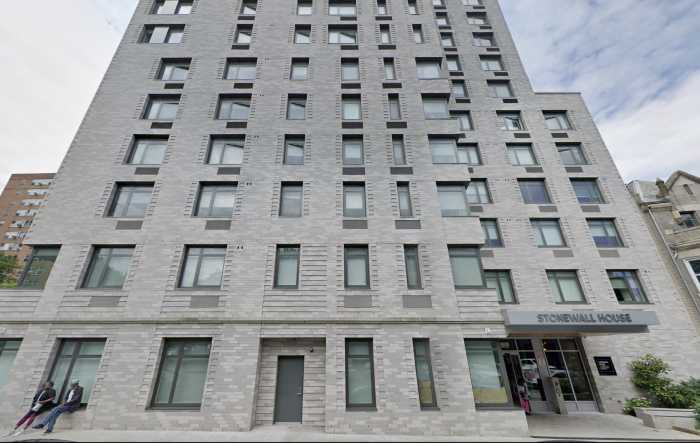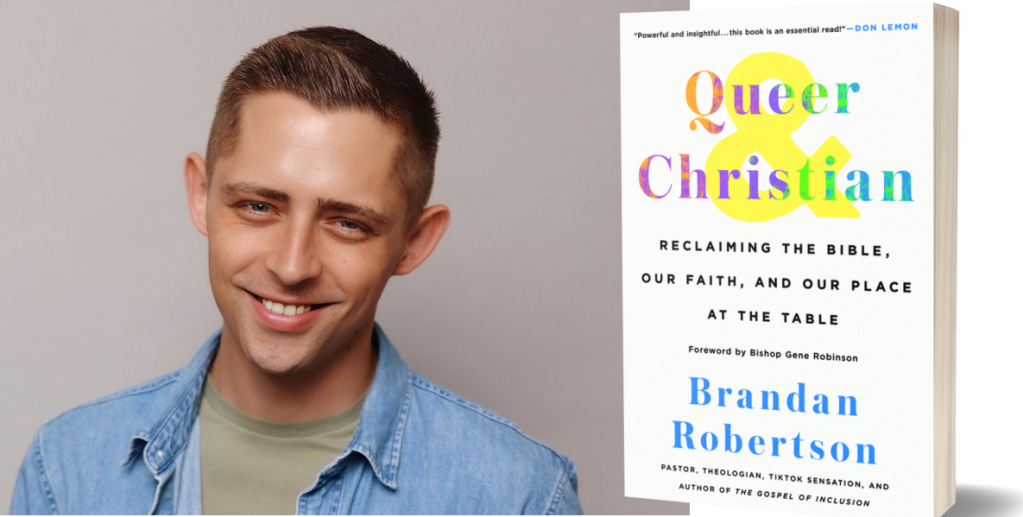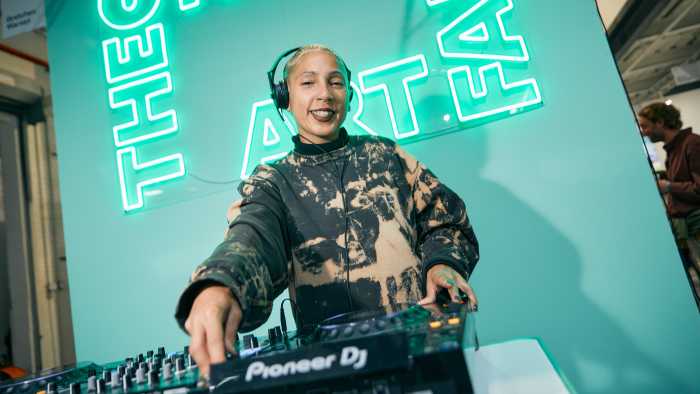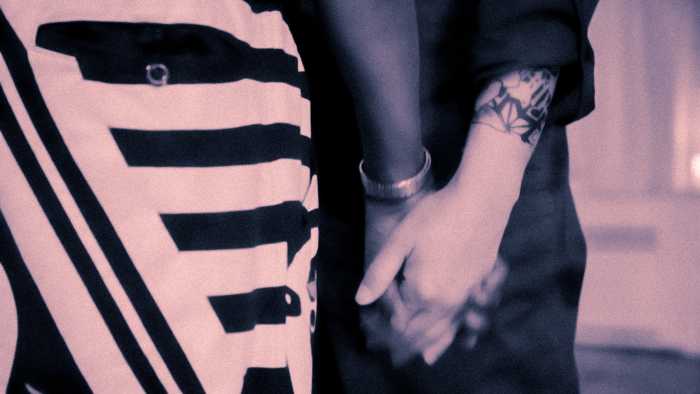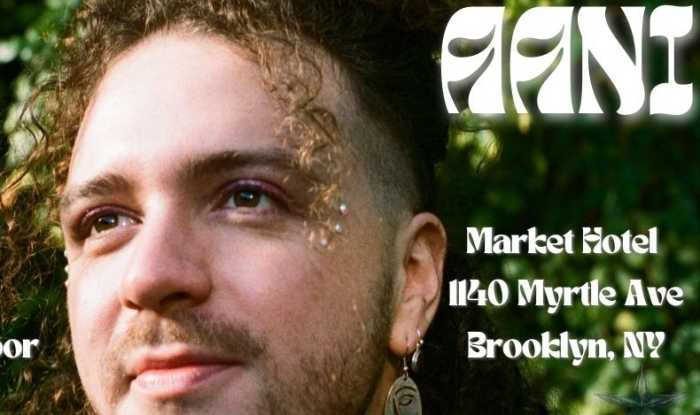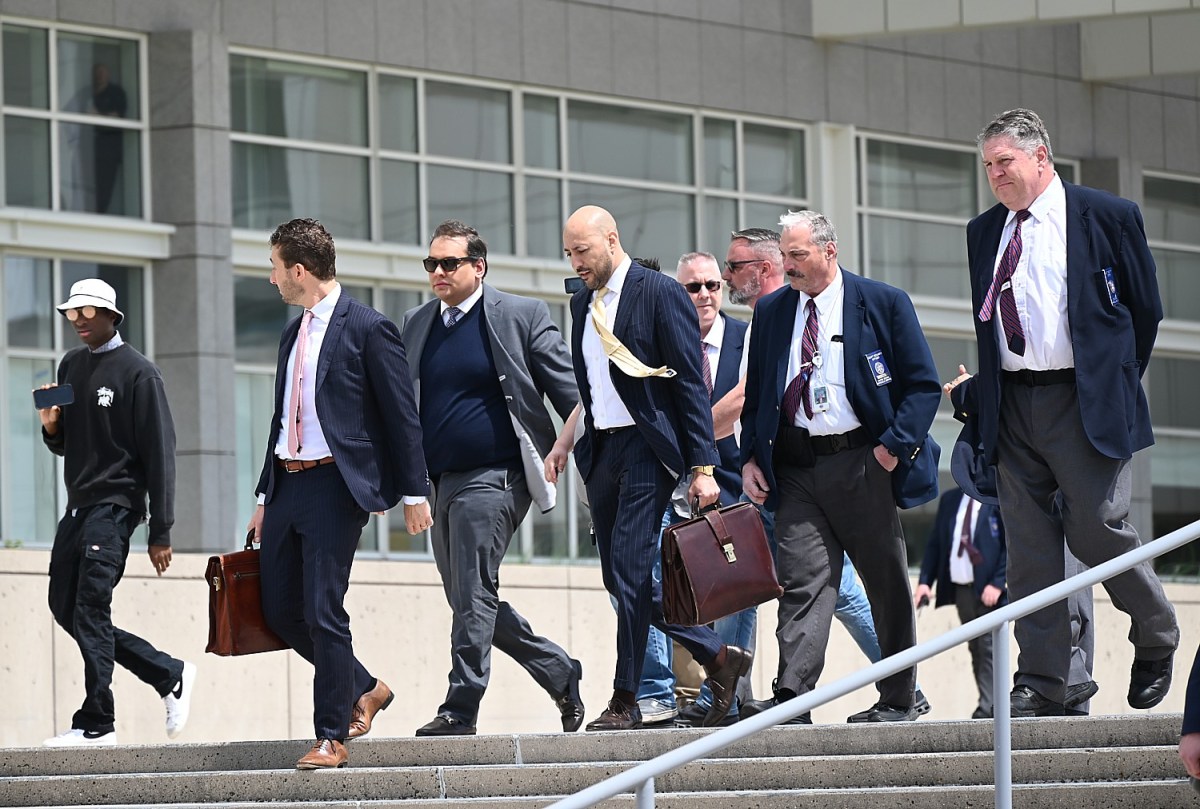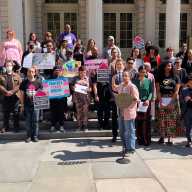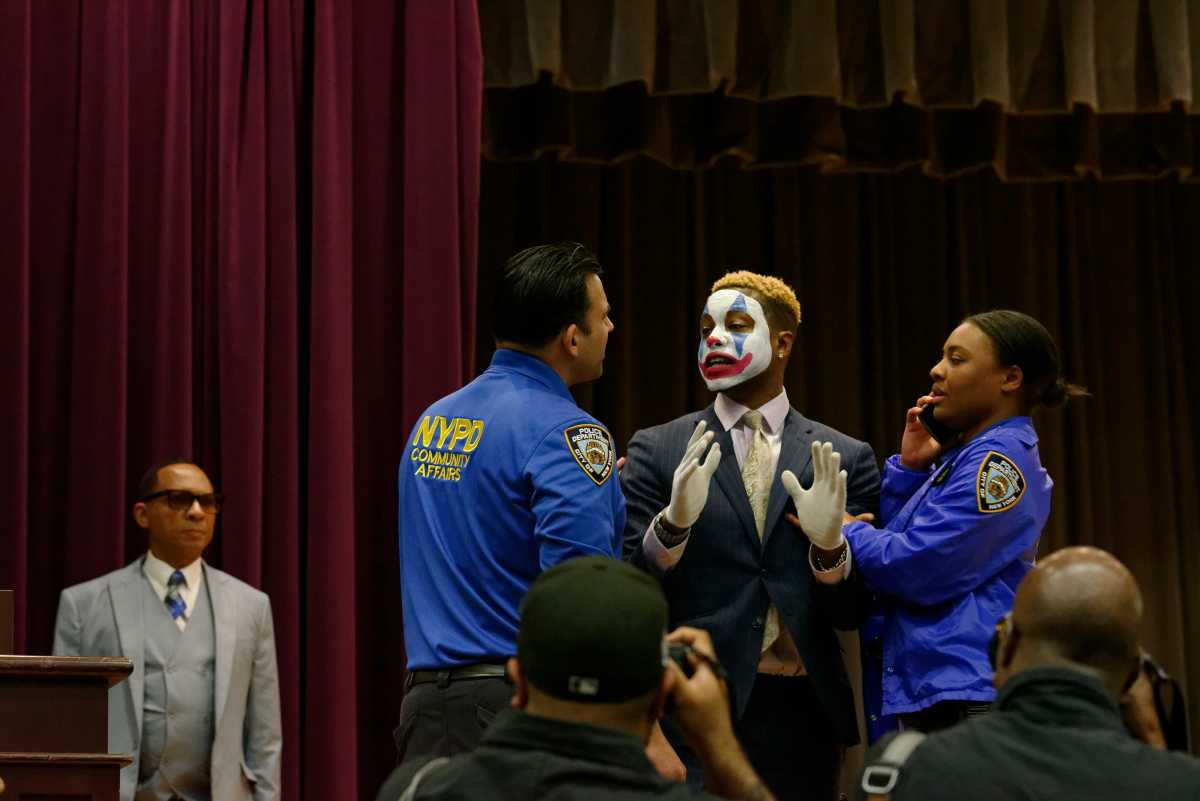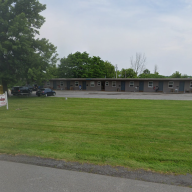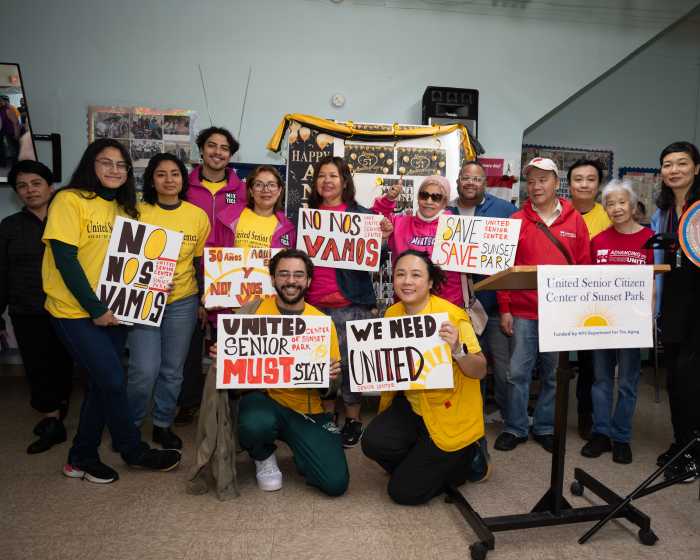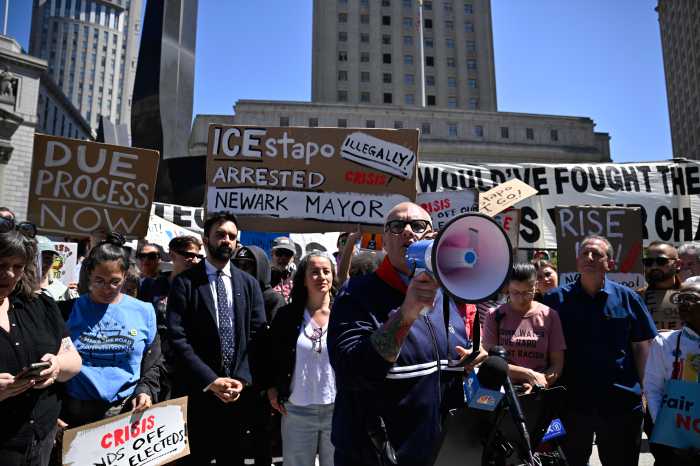VOLUME 3, ISSUE 312 | March 18 – 24, 2004
Curtain Call
BRIDGE & TUNNEL Creating a show-within-a show, the supremely gifted performance artist Sarah Jones’s latest play is based on a poetry slam in South Queens. In this archly provocative play, Sarah Jones, who is of African, European, and Caribbean descent, plays 14 characters from myriad ethnic backgrounds who recite their poetry or perform soliloquies onstage. Without a trace of sentimentality, the play shows the travails of assimilation and racial intolerance in America, as well as revealing common traits some folks would rather ignore. Jones does not hesitate to play the “green card” to drive home her messages in monologues gleaned from months of interviews with immigrants, many of whom are undocumented, and her own meticulous observations of New Yorkers on the subway. With just a quick change of jacket or hat, Jones slips easily into different roles. She’s got the accents, mannerisms, and phrasing down pat, and her timing is flawless—truly a tour de force. The 45 Bleecker St. Theater, 212 253 9983. (D. Kennerley)
BEAUTIFUL CHILD Nicky Silver’s new play tells the story of a youngish male teacher who retreats to his family for protection and to hide from the consequences of molesting an eight-year-old male student, only to find that such protection comes at an awful cost. Beyond the plot’s shocking central element, “Beautiful Child” is an allegory about power and misplaced trust in which the father represents everything we want to believe in and rely on, only to be shown that daddy is at best venal and at worst corrupt. Silver throws information at us—the mother had a hysterectomy and now doesn’t want to be touched; the father has taken a mistress who hangs around the house refusing to leave and who may or may not be pregnant; the psychiatrist from years ago appears as an acerbic memory—but never makes that information organic to the characters’ interaction. There is rage. There is catharsis. There are some damn funny lines. Yet there really isn’t a play here, and one leaves the theater scratching one’s head wondering what just went on. The Vineyard Theatre, 108 E. 15th St., 212 353 0303. (C. Byrne)
BIG BILL A.R. Gurney’s historical exploration of the life of seven-time U.S. Open champ Bill Tilden, the first real superstar in tennis is the focus of this play. Tilden was at the top of his game in the 1920s and 30s, and is remembered today by aficionados of tennis as one of its most accomplished players. But he was also twice convicted of having sex with teen boys in the 1940s. In 1953, at the age of 60, he died broke and alone in Hollywood. Gurney seesaws through the events in the life of the mild-mannered Tilden (John Michael Higgins) with mania, from the athlete’s crowd-pleasing matches to his courtroom appearances to his untimely death. Through Gurney’s eyes, Tilden is alternately an angel, a gentleman, a pederast, an actor, a celebrity, and a basket case, often in the same scene. Tilden’s life story, rife with themes of sadness and loneliness common to gay men’s coming-of-age stories of his day, is one the gay community might have a hard time embracing. Gurney sure did, albeit for different reasons, which makes this play a missed opportunity to recover a tragic, but enlightening piece of one gay man’s life. Mitzi E. Newhouse Theater at Lincoln Center, 150 W. 65th St., 212 239 6200. (E. Piepenburg)
VALHALLA In his latest comedy, Paul Rudnick mines history in comparing and contrasting the lives of King Ludwig II, the 19th century ruler known as “The Mad King of Bavaria,” and the fictitious James Avery, a precocious teenager living in small-town Texas in the 1930s. Ludwig was declared insane after bankrupting his treasury building elaborate castles and grottoes. He also harbored an obsession with Wagner’s opera “Lohengrin,” and if Rudnick is to be believed, wore bows in his hair and slept with chorus boys. James, on the other hand, is a kleptomaniac who sleeps with his best friend Henry Lee, with whom he shares a lifelong passion, wrecks havoc on his town, lands in jail, and earns the wrath of his family. Rudnick uses his sharp tongue to find humor and pathos in these two queer transgressors and makes clear that had they lived at the same time, they probably would have been best friends. New York Theatre Workshop, 79 E. 4th St., 212 780 9037. (E. Piepenburg)
ALICE IN WONDERLAND Bill Osco, the salacious writer/producer/director is back with his first play, an Off-Broadway musical adaptation of 1977’s wicked “Alice in Wonderland,” which re-imagines Alice as a sexual neophyte on a titillating journey of self-discovery and carnal knowledge. This musical comedy is prescribed for “mature audiences” due to “full nudity.” Alice lives with her boozed-up mamma in a trailer park in Weehawken, New Jersey. Wearing a white halter top and skimpy low-rise cut-offs, Alice dreams that a giant Rabbit lures her into his drug-filled domain of iniquity, as she dozes while reading––what else–– “Alice in Wonderland.” In “Wonderland,” all the denizens are oversexed and eager to debauch. The Mad Hatter, whose schlong is even bigger than his top hat, entices Alice to orally pleasure him and the Cheshire “Pussy” is a voracious lesbian. Kirk Theatre, 410 W. 42nd St., 212 239 6200. (D. Kennerley)
AUNT DAN AND LEMON Wallace Shawn’s play challenges us to face our complicity in our government’s aggressions. Narrated by Lemon (Lili Taylor), a Londoner, as a remembrance of her latently lesbian childhood relationship with her parents’ glamorous friend, Aunt Dan (Kristen Johnston), the play jars our comfort philosophically and in its style of presentation. Aunt Dan, “one of the youngest Americans to ever teach at Oxford,” is obsessed with Henry Kissinger. She defends his murderous policies in Vietnam in lusty, comically shocking speeches. Under Aunt Dan’s lingering influence, the grown Lemon, a reclusive with an eating disorder, spends her days reading about, and developing sympathies toward, the Nazis. Putting fascistic philosophies in the mouths of females, Shawn’s uses gender to disenfranchise the audience of its easy notions of aggressive masculinity versus pacifist femininity. Theatre Row, 410 W. 42nd St., 212 239 6200. (E. Andrews)

